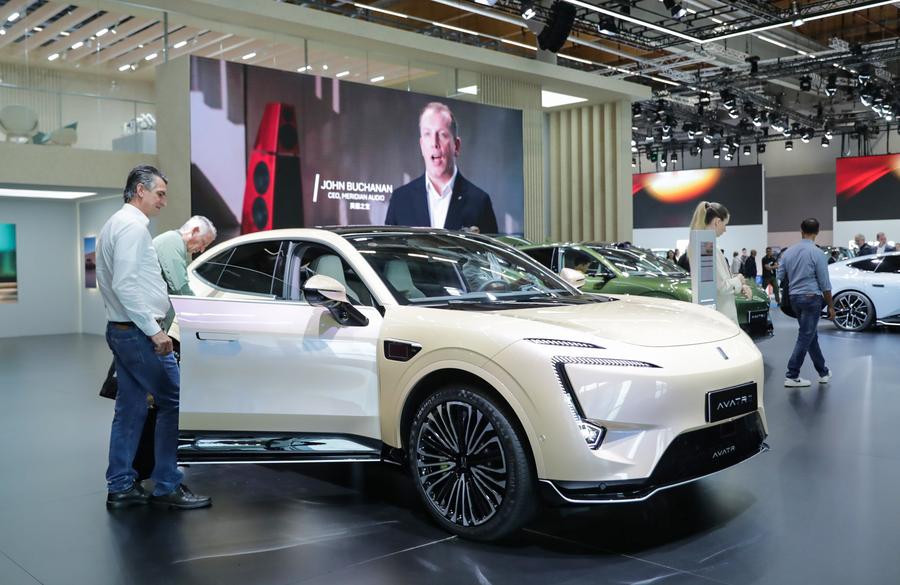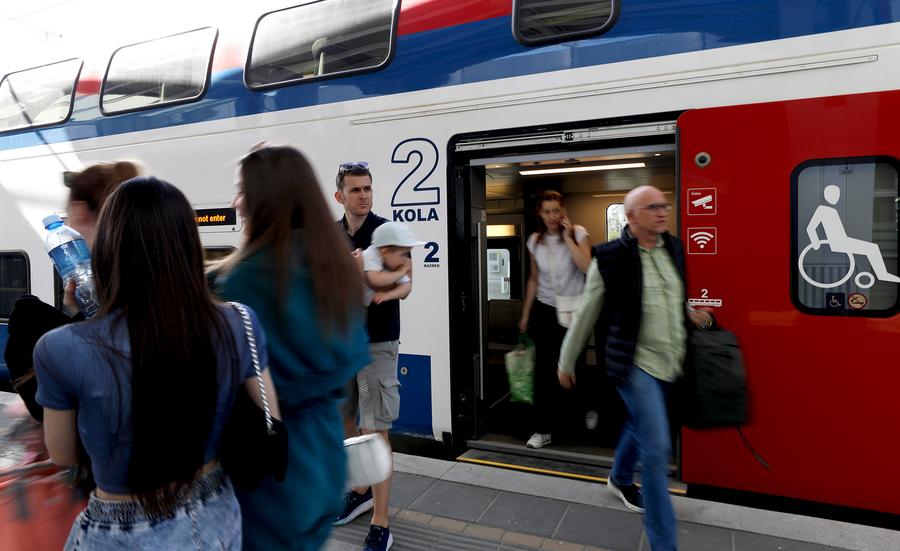Hungarian Minister for National Economy Marton Nagy speaks during an interview with Xinhua in Budapest, Hungary on Sept. 25, 2024. (Photo by Attila Volgyi/Xinhua)
Nagy urged the European Union, even the United States, to invest more in research and development, and to foster healthy competition with China, which would ultimately benefit everyone.
BUDAPEST, Sept. 28 (Xinhua) -- Chinese electric vehicle (EV) technology is neither a threat nor a danger, but a development opportunity, Hungarian Minister for National Economy Marton Nagy said in a recent interview with Xinhua.
"It's very important to see in Europe that Chinese (EV) technology is not a threat, not a danger," Nagy said, adding, "This is an opportunity for technological development."
Regarding Chinese EVs, the more constructive approach is to strengthen cooperation with China, rather than imposing punitive tariffs, he said, adding that he believes "that is the worst path."
Dialogue and cooperation are the best solutions, according to the Hungarian minister.
People visit the booth of AVATR at the Automechanika in Frankfurt, Germany, Sept. 11, 2024. A leading trade fair for the aftermarket sector of the auto industry, Automechanika, kicked off on Tuesday, highlighting electrification and sustainability. (Xinhua/Zhang Fan)
Nagy urged the European Union (EU), even the United States, to invest more in research and development, and to foster healthy competition with China, which would ultimately benefit everyone.
"I believe Chinese car companies have been very successful," he said, adding that some of them are now planning to localize production in Europe.
Nagy said that for consumers, electric vehicles are becoming cheaper, battery costs are falling, and driving ranges are increasing, all of which are very positive outcomes.
Europe must accelerate the green transition of its automotive industry, which will also help improve the EU's competitiveness, Nagy said.
Passengers get off the train at Novi Sad railway station in Novi Sad, Serbia, April 29, 2024. The Budapest-Belgrade railway is one of the flagship projects of China's Belt and Road Initiative. (Xinhua/Li Ying)
"We have to build more charging networks to have infrastructure, and this is a real strategy to push the whole vehicle industry to a new era, that of the green transition," he said.
Nagy also pointed out that the Hungarian government supports economic openness and connectivity.
"I see it as a win-win situation when Chinese companies enter the EU market, with Hungary serving as a gateway thanks to its favorable investment climate, political stability, strong support for investors, and a highly skilled workforce," he said.







 A single purchase
A single purchase









